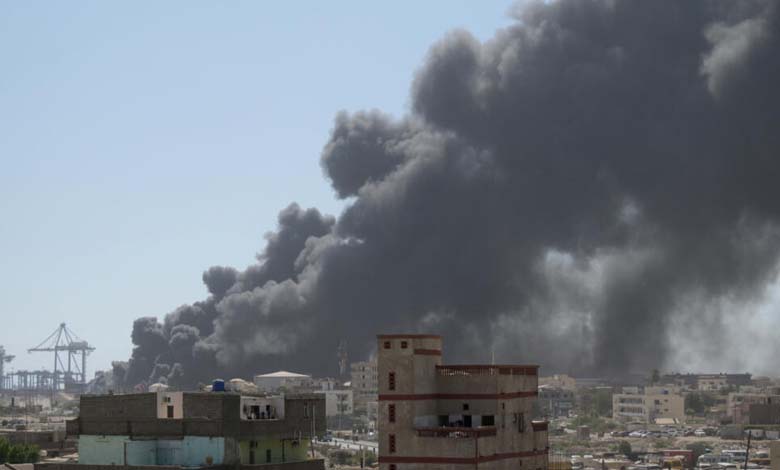Sudanese Political Analyst: Port Sudan Attacks Signal a Dangerous Strategic Shift in the Course of the War

The city of Port Sudan, currently serving as Sudan’s temporary capital, has witnessed an unprecedented escalation in military confrontations between the Sudanese army and the Rapid Support Forces (RSF). The RSF launched drone strikes targeting critical sites including the airport, port, and fuel depots, resulting in fires, power outages, and disruption of air traffic.
-
Precision Strikes Shake Islamist Camps in Port Sudan: Mass Escape and Suspicious Silence from al-Burhan
-
Precision Strikes Expose Shadow Alliances: Foreign Experts Killed and Islamists Unveiled in Port Sudan
These attacks occurred at a time when Port Sudan was considered a relatively safe zone, hosting government offices and humanitarian organizations. This escalation complicates the humanitarian landscape and threatens to worsen the plight of millions of displaced people who have fled other conflict zones.
Since the conflict began in April 2023, over 24,000 people have been killed and around 13 million displaced. Nearly half of Sudan’s population now faces the threat of famine amid obstacles to humanitarian aid and the destruction of infrastructure.
-
Mysterious Airstrike in Port Sudan Reveals Involvement of Foreign Experts and Iranian Arms… Silence from al-Burhan and the Islamic Movement Raises Questions
-
Strategic Strike in Port Sudan Reveals Foreign Involvement, Iranian Arms, and Complicity of the Islamic Movement
Internationally, the Sudanese government faces increasing diplomatic pressure, particularly after accusing regional countries of supplying weapons to the RSF – accusations that have been denied. Meanwhile, the International Court of Justice declined to hear a lawsuit filed against one of those countries.
With fighting ongoing and no clear political solution in sight, warnings of a major humanitarian catastrophe are intensifying unless an immediate ceasefire is reached and negotiations between the warring parties resume.
-
Sudan… The war government issues passports from Port Sudan
-
“Rapid Support Forces” Welcome Washington’s Call for Sudanese Talks in Switzerland and Confirm Their Participation
Sudanese political analyst Dr. Hassan Abdeljabbar stated that the recent RSF attacks on Port Sudan represent a qualitative and dangerous turning point in the conflict, now ongoing for more than a year. He argued that targeting the country’s temporary administrative capital indicates a broadening of the confrontation and a shift in the RSF’s strategic approach.
Abdeljabbar explained that Port Sudan had until recently been considered a “red line” due to its hosting of state institutions and international organizations. He noted that the use of drones to strike the city highlights the RSF’s growing military capabilities and its ability to threaten Sudan’s administrative and logistical core.
-
The Popular Movement Insists on Including Rapid Support Forces in Negotiations with the Government
-
UN Concerns Grow Over Escalating Fighting in El Fasher Between Army and Rapid Support Forces
He added that this blow is likely to alter the political and security dynamics, prompting the international community to reassess the nature of Sudan’s crisis—especially with humanitarian corridors through the port now disrupted and infrastructure damaged.
Abdeljabbar concluded by stressing that continued escalation without decisive international intervention could push the country into an even bloodier phase and undermine any prospects for a political solution.












